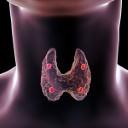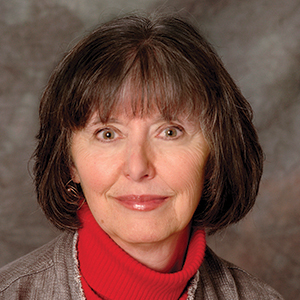-
Opioid Overdoses in Cancer Patients and Survivors
The number of cancer patients and survivors visiting emergency departments for opioid overdoses more than doubled between 2006 and 2015, but overdoses are still uncommon in this group.
by Emma Yasinski
-
Preparing Patients for Radiation Therapy Side Effects
A study shows that some cancer patients wish they had known more about possible adverse effects of treatment.
by Jon Kelvey
-
When Cancer Becomes an Unwanted Priority
Amanda Rose Ferraro's leukemia diagnosis forced her to spend time at the hospital away from her 3-year-old-son. She calls focusing on her health and leaving her son “the hardest thing I have ever had to do.”
by Amanda Rose Ferraro
-
Clinical Trials: An African American Survivor’s Experience
Melvin Mann benefited from joining a pivotal clinical trial for chronic myelogenous leukemia, but participation came with logistical challenges.
by Melvin Mann
-
Food Insecurity and Cancer
After discovering that some patients weren't able to access the food they needed, a community oncology practice partnered with a local food bank.
by Jen Tota McGivney
-
“Congrats! You Have the ‘Good’ Cancer”
Many people know thyroid cancer as a cancer type with a relatively good prognosis, but the disease still has profound effects on patients and survivors, writes thyroid cancer survivor Carly Flumer.
by Carly Flumer
-
Telling Your Children About Inheritable Cancer Risk
Letting children know they might have a mutation that increases their risk for cancer can be a challenge for patients. Experts stress there is no right or wrong way to share the information.
by Marci A. Landsmann
-
How Disability Insurers Monitor Patients Online
Companies that offer disability insurance may monitor patients' social media accounts to determine if they qualify for the benefits being received.
by Kate Yandell
-
Your Cancer Guide
Do You Need to Talk?Follow these steps to find a therapist who can meet your needs.
by Hester Hill Schnipper
-
Caregiving With Confidence
Take Financial InventoryTreatment-related expenses can increase stress on both caregivers and patients. Learning to talk about these concerns may help ease the burden.
by Aimee Swartz
Cancer Talk
Lessons From 20 Years Living With Cancer
Multiple myeloma survivor Jonathan Gluck reflects on uncertainty, and the scientific progress that has kept him living with cancer for more than two decades.
by Eric Fitzsimmons
The Enduring Importance of Cancer Disparities ResearchOpening session from AACR conference highlights how perseverance and adversity have informed cancer disparities research over the years.
by Eric Fitzsimmons
Most Cancer Survivors Don’t Meet Healthy Diet GoalsDespite research linking fruits and vegetables to cancer survival, many people do not change their eating habits after diagnosis.
by Darlene Dobkowski
Many People Don’t Get Colonoscopy After Receiving Abnormal Blood TestsAbout half of people who receive abnormal results from colorectal cancer screening tests don’t follow up with a colonoscopy.
by Laura Gesualdi Gilmore















